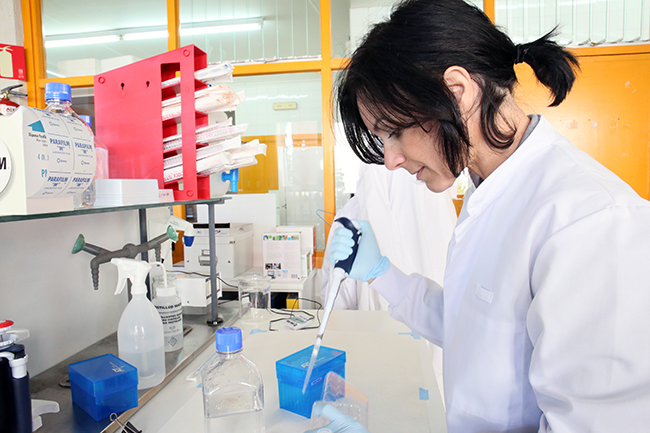ERA-NET NEURON, the European network devoted to conducting research into neurosciences, has provided funding amounting to 800,000 euros for a project to study autism; the project is being led by the researcher Olga Peñagarikano of the UPV/EHU’s Faculty of Medicine and Nursing. The programme, which is being coordinated from the UPV/EHU, is being run in conjunction with another three research groups in France, Belgium and Germany. Each one has received a grant of 200,000 euros to conduct research from 2019 to 2021 into the neurobiological causes of autism.
-

Euskal Herriko Unibertsitateak ikasturteari hasiera emateko ekitaldia egin du
-

45.000 ikasle baino gehiagorekin hasi da 2024/2025 ikasturtea UPV/EHUn
-

Lorea Argaratek jasoko du Gladys saria
-

Gantza, gure elikadurako funtsezko elementua
-

UPV/EHUk nazioarteko 2.000 ikasle baino gehiago izango ditu ikasturte berrian
The UPV/EHU-University of the Basque Country is coordinating a European research consortium on autistic disorders
The European ERA-NET NEURON network has provided 800,000 euros of funding for the programme aiming to identify the brain mechanism that contributes towards autism
- Research
First publication date: 20/11/2018

The ERA-NET NEURON network comprises organisations in Europe, Israel, Turkey and Canada and funds top-quality research within the framework of the Horizon 2020 programme. These projects allow groups to work together, and exchange ideas and experiences in areas relating to health and mental disorders. In the most recent call 12 projects were funded in Europe, including the programme relating to autism that is being coordinated by Peñagarikano.
The research in this cross-border project is focussing on the neurobiological mechanisms that affect brain development and their link with Autism Spectrum Disorder. What happens is that genes associated with autism coordinate the movements of two types of neurons (excitatory projection neurons and inhibitory interneurons) from the place where they are born to their proper location in the cerebral cortex, the external part of the brain involved in cognitive processes.
The team led by the UPV/EHU researcher is aiming to identify the coordination problems of these two types of neurons in the process in which the cerebral cortex is formed; the team will then go on to develop pharmacological therapies to address Autism Spectrum Disorder. This is a disease mainly of genetic origin and is characterised by shortcomings in social interaction and the presence of repetitive behaviours and restricted interests; it affects one in 59 children.


